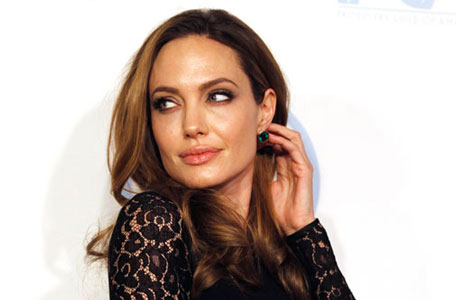- City Fajr Shuruq Duhr Asr Magrib Isha
- Dubai 04:31 05:49 12:21 15:48 18:47 20:05

(GETTY/GALLO)
When Hollywood superstar and Brad Pitt’s wife, Angelina Jolie, shared with the world that she had gone in for a double mastectomy, the ‘BRCA genes’ went from being the domain of researchers and geneticists to being on the lips of every woman – even here in the UAE.
Angelina did a gene test and the test pointed out evidence of a BRCA mutation. Considering the positive history of cancer in her family and the evidence of her BRCA 1 genes, her chances of developing cancer were around 90 per cent. Hence, her reason for the mastectomy.
In the UAE, where breast cancer awareness is continuously advocated, clinics are more crowded than ever, consultants are overwhelmed by questions and requests and some women have suddenly decided that a mastectomy is the best for them too.
Breast cancer awareness has certainly been brought to another level. However, the question is whether this has contributed, or added confusion to the awareness about breast cancer.
Should we all do a gene test, then?
Gene testing
“Less than 10 per cent of all breast cancers are due to a BRCA mutation, so it is not a test that is generally used in cancer detection. Some women who are high risk due to their family history would benefit from the test,” explains Dr Houriya Kazim, Breast Surgeon at Well Woman Clinic.
The chance of developing cancer can be determined by a combination of factors and is not only determined by the evidence of the BRCA gene, explains Dr Zayd al Mazami, Surgeon and Breast Cancer Consultant at Dubai Hospital.

Although the test is not available in the UAE, samples can be sent to different institutes around the world.
Dubai Hospital sends samples of patients to Vienna. Before it agrees to do so it follows a protocol, determining the eligibility of the patient.
“A patient is eligible when two close family members have had cancer, or one close family member under the age of 40.
“There are a couple of other factors which make the patient eligible, because these indicate risk factors,” explains Dr Zayd.
“I think it is great that there is more awareness about ways to prevent breast cancer. But there is some information missing. There are considerable consequences of knowing that you have the genes,” comments Linda.
Do you really want to know?
"When the test results are positive, you might always be afraid. You might not be able to sleep!" says Dr. Zayd, explaining that the hospital offers counseling after such results have been received.
“Once you know that you might develop cancer, you have to decide what you do with this information. A mastectomy can diminish the chance of developing cancer to 10 per cent.
“But it is a drastic procedure, and the chance of developing cancer is not always as high as 90 per cent.”
According to Dr Houruya, many women suddenly feel courageous to take the decision of a mastectomy now that a celebrity has done so.
"My clinic has received many phone calls in the wake of Angelina's revelation asking about the genetic test.
“Many of the women who called were not necessarily in a medically high risk group, which is an important thing to mention.
“Women with a grandmother who had breast cancer in her 60s would say they have cancer in the family, whereas we would not necessarily consider her a high-risk patient."
Linda agrees. "Women seem to think 'if Angelina can do it, I can do it'. But let us not glamourise this. It is not an easy decision. It is great that we have the option of 'knowing', but it is important to have enough information about the consequences of knowing."
Doing a gene test is a good tool allowing women to make a solid decision about their breasts, thinks Dr. Houriya.
"I tell my patients to do the test only if they intend to proceed to removing both breasts. I take a long time counseling these women and really do not recommend them do the test if I feel they are not ready to do the surgery.
"There are many women who are confused. But in my practice this week, I have been able to talk many women through it - both those that should do the test and those that do not need to.
“I have some patients who have done the test on their own, found out they were carrying the mutation but have not been brave enough to follow through with the surgery. Angelina's revelation has certainly helped these women to think about moving forward."
Early detection
Asked about the key factor in raising awareness about breast cancer, Moza Hattawi, Chairperson of the Breast Cancer Awareness Committee and Surgeon at Dubai Hospital points the importance of early detection.
If detected early there are good chances of surviving cancer. This is why people like Dr. Moza inform people about the several ways this can be done.
“Self-determination is one of the best ways to do this.
“If you determine yourself on a monthly basis, you will best be able to notice if there is anything abnormal.
“You know your own body best,” she said.
Mammograms are another preventive step, which is recommended to all women above the age of 40.
In case there is a strong history of cancer in the family, there should be more concern and a mammogram could be desirable starting from an earlier age, the doctor explains.
![]() Follow Emirates 24|7 on Google News.
Follow Emirates 24|7 on Google News.